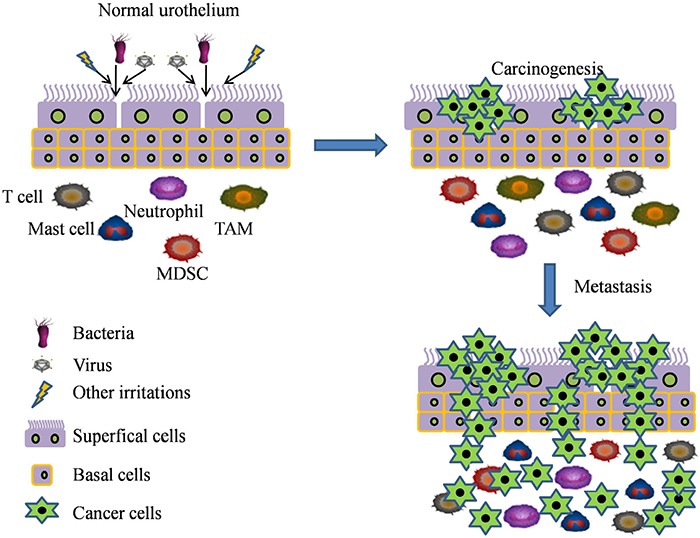Figure 1. The inflammatory spectrum underlying the carcinogenesis and progression of bladder cancer.

Many factors such as infections (bacterial, S. haematobium, viral), proinflammatory cells (such as TAM, MDSC, T cells, mast cells and neutrophils), and chronic chemical or mechanical irritation are considered as a major risk factors of chronic inflammation. These factors can activate the inflammatory responses which contribute to the formation and development of bladder cancer.
